Safety Simplified Blog
-
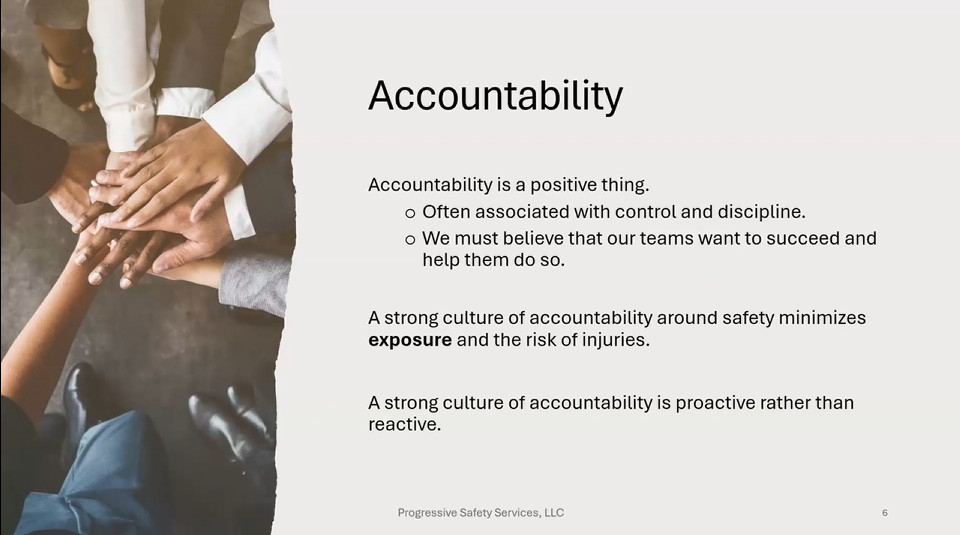 Building a Culture of Safety: Accountability from the Ground UpAccountability is a cornerstone of workplace safety and fosters a culture where safety protocols are not just followed but integrated into the daily operations of an organization. Joe Mlynek, CSP, OHST, founder of Progressive Safety Services, LLC and co-owner of Safety Made Simple shares his research and work around employee engagement, responsibility and how accountability […]
Building a Culture of Safety: Accountability from the Ground UpAccountability is a cornerstone of workplace safety and fosters a culture where safety protocols are not just followed but integrated into the daily operations of an organization. Joe Mlynek, CSP, OHST, founder of Progressive Safety Services, LLC and co-owner of Safety Made Simple shares his research and work around employee engagement, responsibility and how accountability […] -
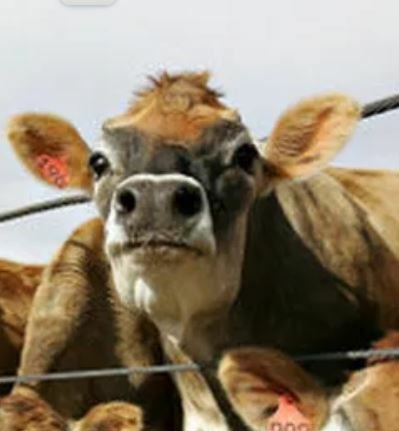 Feedlot Safety: Low Stress Cattle HandlingStressed cattle can easily injure or kill a worker. According to the Kansas Livestock Association’s Work Comp Program, 45% of feedlot injuries involve working with cattle. Understanding cattle behavior and implementing low stress cattle handling practices can prevent serious injuries and fatalities. Low-stress cattle handling incorporates the understanding of cattle’s natural behaviors. Using this knowledge, […]
Feedlot Safety: Low Stress Cattle HandlingStressed cattle can easily injure or kill a worker. According to the Kansas Livestock Association’s Work Comp Program, 45% of feedlot injuries involve working with cattle. Understanding cattle behavior and implementing low stress cattle handling practices can prevent serious injuries and fatalities. Low-stress cattle handling incorporates the understanding of cattle’s natural behaviors. Using this knowledge, […] -
 FALL PROTECTION: SUSPENSION TRAUMAThe majority of employees are aware of fall hazards in their work environment. They also have knowledge in fall protection strategies, required equipment, and inspection protocols. However, they are often unaware of orthostatic intolerance and suspension trauma. Ortho Static Intolerance Orthostatic intolerance is “the development of symptoms such as light-headedness, heart palpitations, poor concentration, fatigue, […]
FALL PROTECTION: SUSPENSION TRAUMAThe majority of employees are aware of fall hazards in their work environment. They also have knowledge in fall protection strategies, required equipment, and inspection protocols. However, they are often unaware of orthostatic intolerance and suspension trauma. Ortho Static Intolerance Orthostatic intolerance is “the development of symptoms such as light-headedness, heart palpitations, poor concentration, fatigue, […] -
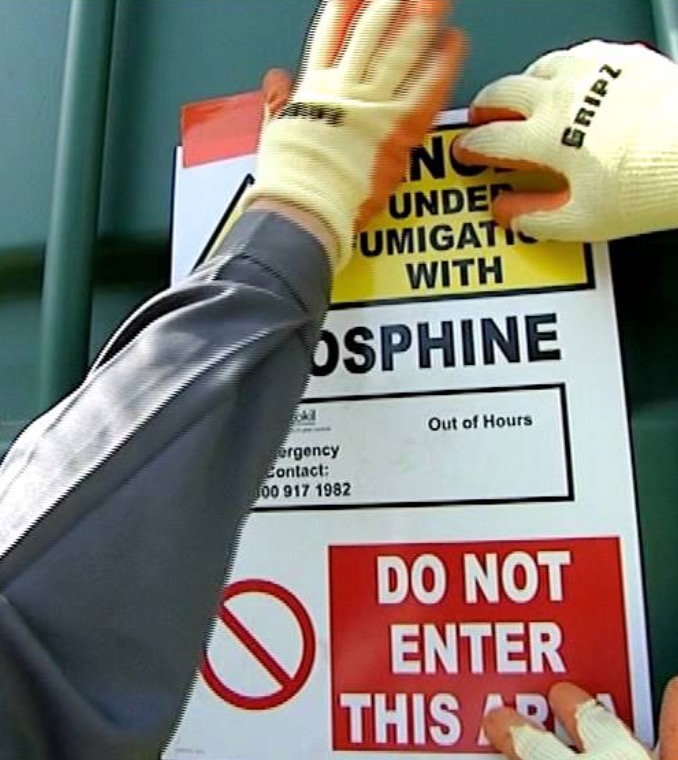 GRAIN FUMIGANT HAZARDSPhosphine has been used in the fumigation of grain storage structures since 1958. Available formulations include aluminum or magnesium phosphide. Both penetrate deeply into stored grain killing target pests. While licensed fumigators are highly trained in phosphine’s hazards, many affected employees and contractors working in close proximity to fumigated structures are not. This blog provides […]
GRAIN FUMIGANT HAZARDSPhosphine has been used in the fumigation of grain storage structures since 1958. Available formulations include aluminum or magnesium phosphide. Both penetrate deeply into stored grain killing target pests. While licensed fumigators are highly trained in phosphine’s hazards, many affected employees and contractors working in close proximity to fumigated structures are not. This blog provides […] -
 EMERGENCY ACTION PLANSBack when I played football I was on the “hands team.” The hands team was sent out on the field whenever there was the slightest chance our opponent would attempt an onside kick. I don’t recall our opponents ever attempting an onside kick, but that didn’t stop our coach from practicing this every Thursday before […]
EMERGENCY ACTION PLANSBack when I played football I was on the “hands team.” The hands team was sent out on the field whenever there was the slightest chance our opponent would attempt an onside kick. I don’t recall our opponents ever attempting an onside kick, but that didn’t stop our coach from practicing this every Thursday before […] -
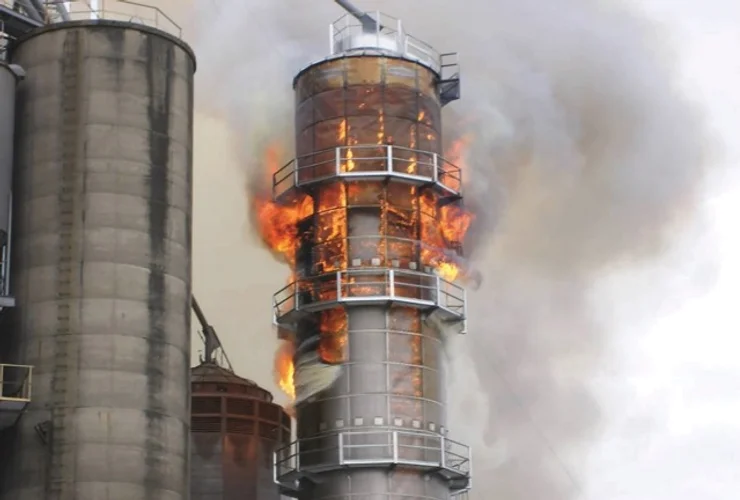 PREVENTING AND RESPONDING TO GRAIN DRYER FIRESGrain dryer fires pose unique hazards to the grain handling industry. These fires can result in downtime, lost revenue, injury and possible death. It is imperative that each facility engaged in grain drying, develop and document an effective emergency response plan to deal with these incidents. Causes Grain dryers move high volumes of air through […]
PREVENTING AND RESPONDING TO GRAIN DRYER FIRESGrain dryer fires pose unique hazards to the grain handling industry. These fires can result in downtime, lost revenue, injury and possible death. It is imperative that each facility engaged in grain drying, develop and document an effective emergency response plan to deal with these incidents. Causes Grain dryers move high volumes of air through […] -
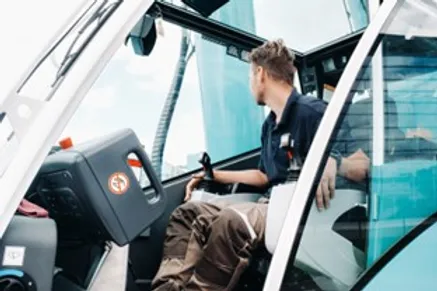 MOBILE CRANE SAFETYMobile cranes are used in various industries for maintenance and construction related projects. Whether you work for a construction company or host employer, it is important to understand the basic requirements. This blog will discuss several important operating requirements outlined in OSHA 1926, Subpart CC, Cranes and Derricks in Construction. Ground Conditions Ground conditions can […]
MOBILE CRANE SAFETYMobile cranes are used in various industries for maintenance and construction related projects. Whether you work for a construction company or host employer, it is important to understand the basic requirements. This blog will discuss several important operating requirements outlined in OSHA 1926, Subpart CC, Cranes and Derricks in Construction. Ground Conditions Ground conditions can […] -
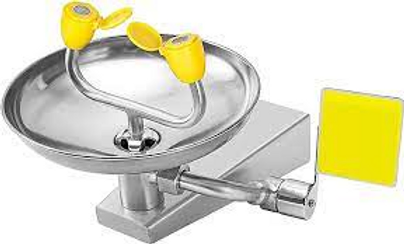 EYEWASHES AND EMERGENCY SHOWERSThe National Institute for Occupational Safety and Health (NIOSH) estimates that about 2,000 U.S. workers sustain job-related eye injuries requiring medical treatment each day. While many of these injuries are caused by small particles striking or abrading the eye, many are also caused by exposure to hazardous chemicals. Emergency eyewash and shower units play a […]
EYEWASHES AND EMERGENCY SHOWERSThe National Institute for Occupational Safety and Health (NIOSH) estimates that about 2,000 U.S. workers sustain job-related eye injuries requiring medical treatment each day. While many of these injuries are caused by small particles striking or abrading the eye, many are also caused by exposure to hazardous chemicals. Emergency eyewash and shower units play a […] -
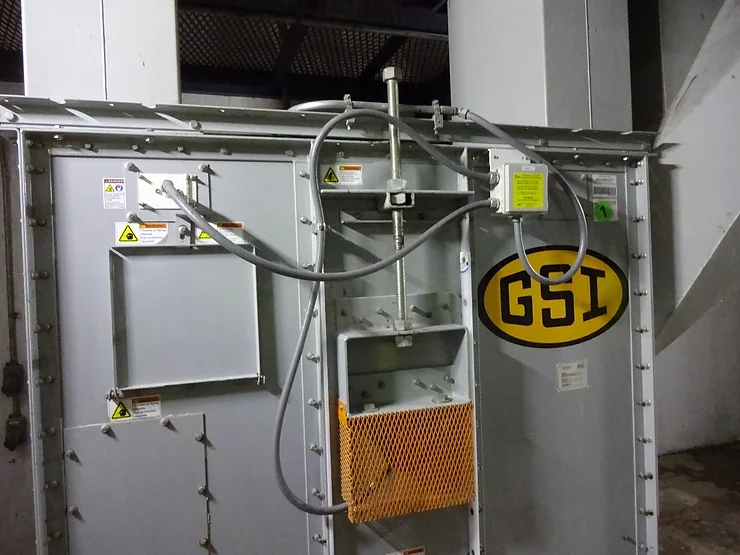 GRAIN DUST EXPLOSION PREVENTIONHazard monitoring equipment can prevent grain dust explosions, save lives, and protect your facility from collateral damage. I have always referred to these systems as “cheap insurance.” The up-front investment pales in comparison to the impacts an explosion has on employees, facility infrastructure, and business interruption. Ignition Sources There are three primary ignition sources that […]
GRAIN DUST EXPLOSION PREVENTIONHazard monitoring equipment can prevent grain dust explosions, save lives, and protect your facility from collateral damage. I have always referred to these systems as “cheap insurance.” The up-front investment pales in comparison to the impacts an explosion has on employees, facility infrastructure, and business interruption. Ignition Sources There are three primary ignition sources that […] -
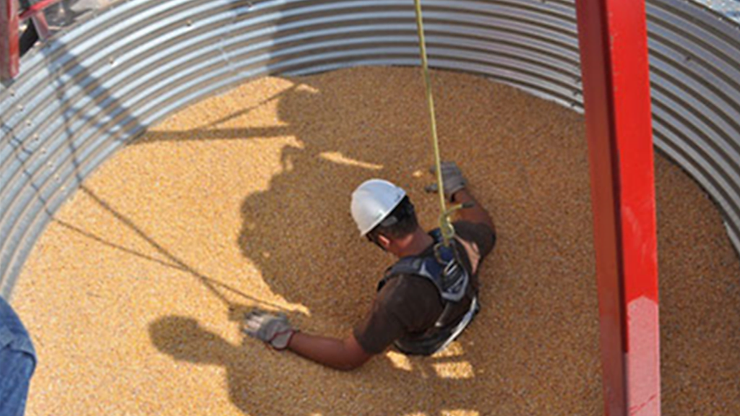 2022 AG-RELATED CONFINED SPACE INCIDENTSThe following information is part of a report released by Purdue University’s Agricultural Safety and Health Program. This report is on reported agricultural confined space incident related injury and fatality cases documented during 2022. The program has documented and, entered into Purdue’s Agricultural Confined Space Incident Database, more than 2,460 fatal and non-fatal agricultural […]
2022 AG-RELATED CONFINED SPACE INCIDENTSThe following information is part of a report released by Purdue University’s Agricultural Safety and Health Program. This report is on reported agricultural confined space incident related injury and fatality cases documented during 2022. The program has documented and, entered into Purdue’s Agricultural Confined Space Incident Database, more than 2,460 fatal and non-fatal agricultural […] -
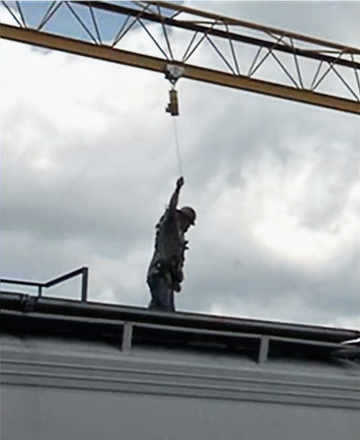 RAILCAR FALL PROTECTION: FIXED SYSTEMSI once had a conversation with a safety manager that ended with, “I’m sorry, but I have to cut our call short. One of our managers just fell off a railcar.” Imagine falling 15 feet to the ground below. The very thought brings to mind images of debilitating injuries and possibly death. Fortunately, fixed horizontal […]
RAILCAR FALL PROTECTION: FIXED SYSTEMSI once had a conversation with a safety manager that ended with, “I’m sorry, but I have to cut our call short. One of our managers just fell off a railcar.” Imagine falling 15 feet to the ground below. The very thought brings to mind images of debilitating injuries and possibly death. Fortunately, fixed horizontal […] -
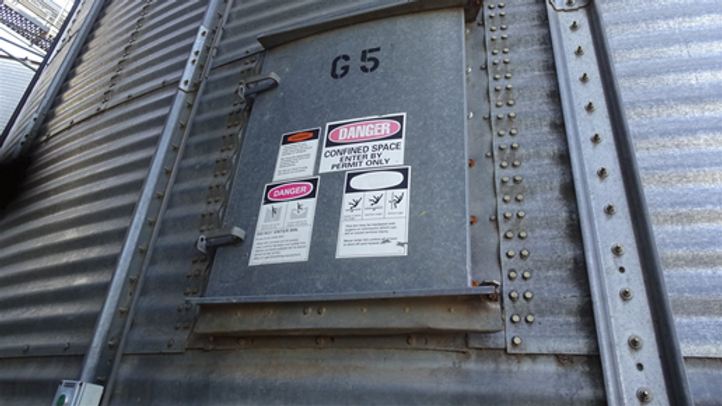 OXYGEN DEFICIENCY IN CONFINED SPACESAsk any well-trained employee entering confined spaces what their main concern is, and they will most likely say, “oxygen deficiency.” Notice the use of the words “well-trained.” Oxygen deficiency in confined spaces isn’t something we can see with our eyes. However, if we can educate employees on the causes, symptoms, and health effects oxygen deficiency […]
OXYGEN DEFICIENCY IN CONFINED SPACESAsk any well-trained employee entering confined spaces what their main concern is, and they will most likely say, “oxygen deficiency.” Notice the use of the words “well-trained.” Oxygen deficiency in confined spaces isn’t something we can see with our eyes. However, if we can educate employees on the causes, symptoms, and health effects oxygen deficiency […] -
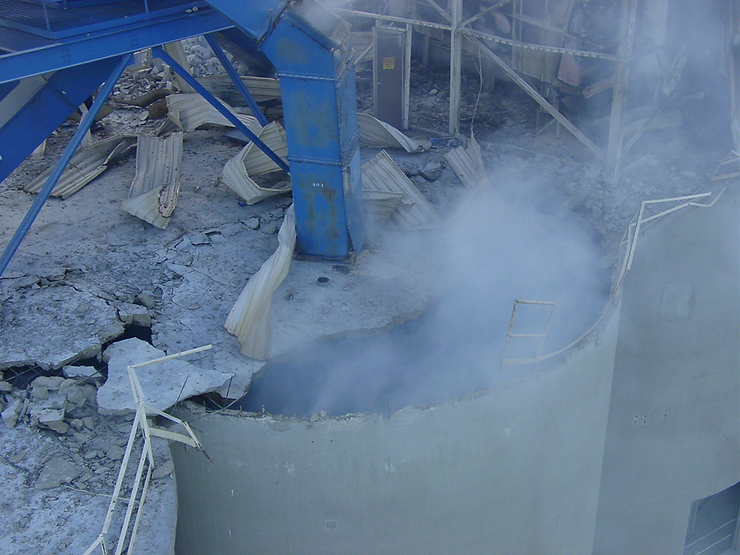 COMBUSTIBLE DUST IN AGRICULTURAL AND PROCESSING FACILITIESWorkers in grain elevators as well as milling and processing facilities are no stranger to combustible dust. Many have experienced the power of these tiny particles first-hand or have seen pictures of the damage caused by dust explosions. If you’ve ever wondered the determining factors that make dust combustible, you’ve come to the right place. […]
COMBUSTIBLE DUST IN AGRICULTURAL AND PROCESSING FACILITIESWorkers in grain elevators as well as milling and processing facilities are no stranger to combustible dust. Many have experienced the power of these tiny particles first-hand or have seen pictures of the damage caused by dust explosions. If you’ve ever wondered the determining factors that make dust combustible, you’ve come to the right place. […] -
 TRUCK DRIVER SAFETY GUIDETruck drivers carry a great deal of responsibility on the roads. Having the right skills and knowledge to safely operate their vehicles keeps them safe and protects other motorists. While truck drivers undergo a specific exam to get their commercial driver’s license, additional trucking safety and compliance training can upskill drivers to operate their vehicles […]
TRUCK DRIVER SAFETY GUIDETruck drivers carry a great deal of responsibility on the roads. Having the right skills and knowledge to safely operate their vehicles keeps them safe and protects other motorists. While truck drivers undergo a specific exam to get their commercial driver’s license, additional trucking safety and compliance training can upskill drivers to operate their vehicles […] -
 YOUR EFFECTIVE WORKPLACE COMMUNICATION GUIDECommunicating is something we all do. But when did you last consider how effective your communication is in the workplace? What would your employees say? Getting communication right is something you can achieve — it just takes consideration and intentionality. Let’s look at the steps you can take to become an excellent and effective communicator. […]
YOUR EFFECTIVE WORKPLACE COMMUNICATION GUIDECommunicating is something we all do. But when did you last consider how effective your communication is in the workplace? What would your employees say? Getting communication right is something you can achieve — it just takes consideration and intentionality. Let’s look at the steps you can take to become an excellent and effective communicator. […] -
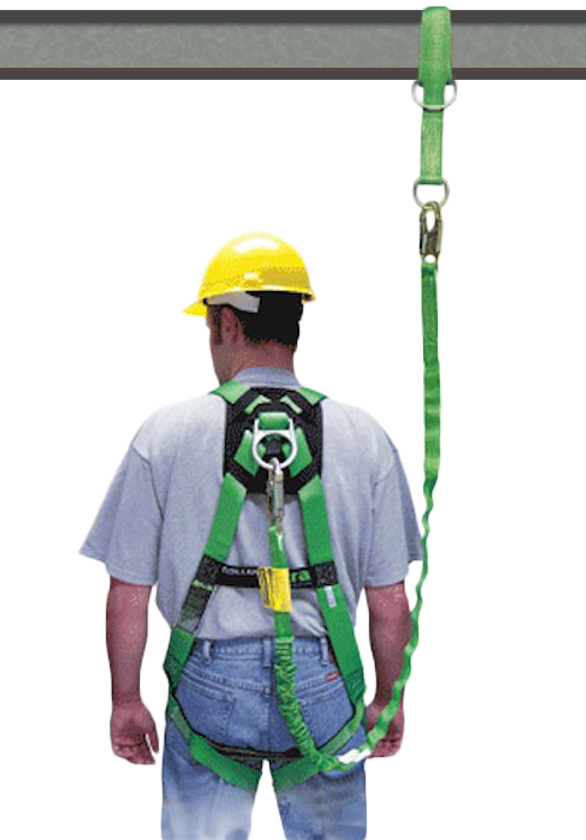 FALL PROTECTION EQUIPMENT INSPECTIONSI recently assisted a company with their annual fall protection equipment inspections. It was a tedious and monotonous task but well worth it. Throughout the process we removed numerous body harnesses, connectors, self-retracting lifelines, and safety ropes. Each piece of equipment removed from service was a reminder of the importance of the pre-use and annual […]
FALL PROTECTION EQUIPMENT INSPECTIONSI recently assisted a company with their annual fall protection equipment inspections. It was a tedious and monotonous task but well worth it. Throughout the process we removed numerous body harnesses, connectors, self-retracting lifelines, and safety ropes. Each piece of equipment removed from service was a reminder of the importance of the pre-use and annual […] -
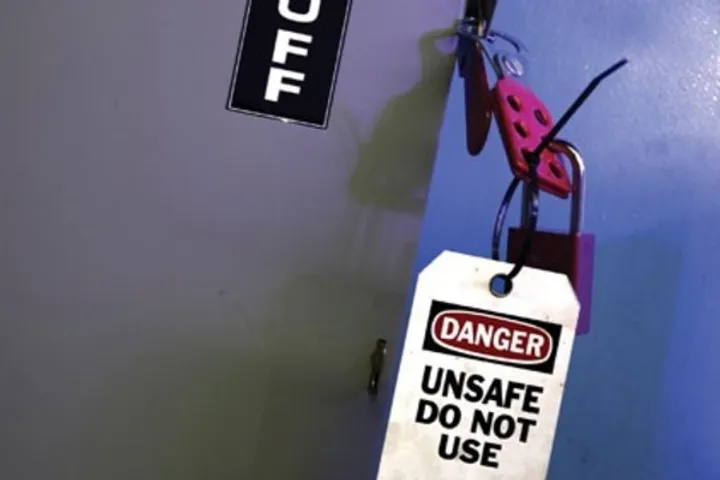 LOCKOUT TAGOUTCore Elements of an Effective Program The Occupational Safety and Health Administration (OSHA) promulgated the standard for The Control of Hazardous Energy (Lockout Tagout), Title 29 Code of Federal Regulations (CFR) Part 1910.147 in 1982. The standard is responsible for preventing numerous injuries and fatalities since it went into effect in 1989. Lockout tagout is […]
LOCKOUT TAGOUTCore Elements of an Effective Program The Occupational Safety and Health Administration (OSHA) promulgated the standard for The Control of Hazardous Energy (Lockout Tagout), Title 29 Code of Federal Regulations (CFR) Part 1910.147 in 1982. The standard is responsible for preventing numerous injuries and fatalities since it went into effect in 1989. Lockout tagout is […] -
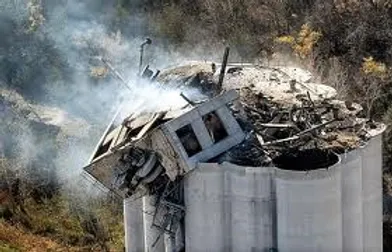 GRAIN DUST EXPLOSIONSGrain dust explosions often result in fatalities, injuries, and significant property damage. OSHA’s Grain Handling Standard 29 CFR Part 1910.272 addresses grain dust explosion prevention and includes a requirement for a written housekeeping program to address fugitive grain dust. Why Does Gain Dust Explode? Secondary explosions occur when the blast or pressure wave from the […]
GRAIN DUST EXPLOSIONSGrain dust explosions often result in fatalities, injuries, and significant property damage. OSHA’s Grain Handling Standard 29 CFR Part 1910.272 addresses grain dust explosion prevention and includes a requirement for a written housekeeping program to address fugitive grain dust. Why Does Gain Dust Explode? Secondary explosions occur when the blast or pressure wave from the […]
